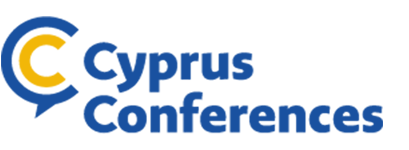Rome, Italy
Dec 2024
Edge Computing
For the first time out of the United States, the Ninth ACM/ IEEE Symposium on Edge Computing (SEC 2024) was held from December 4–7, 2024, in the ancient city of Rome. The conference took place at the luxurious Radisson Blu GHR Hotel, offering state-of-the-art facilities and easy access to iconic landmarks like the Spanish Steps and Villa Borghese.
This prestigious event brought together 106 academics, researchers, practitioners, and students from 25 countries to discuss the transformative impact of edge computing on the future of technology. Under the leadership of General Chair George Pallis, and Program Chairs Songqing Chen and Aaron Ding, the conference offered a robust program, including workshops, a panel, keynote speeches, and networking events. The meticulous planning of Workshop Chair Kewei Sha ensured diverse and innovative workshops that aligned with SEC’s legacy of excellence.
Exploring the Future of Edge Computing
Since 2016, the SEC series has been a premier forum for thought leaders to explore the opportunities and challenges presented by rethinking cloud computing architectures in favor of edge computing. This year’s conference embraced a wide range of perspectives from academia, industry, and government, addressing advancements in AI, IoT, cybersecurity, and the role of edge computing in creating smarter, more connected systems.
The conference featured two inspiring keynote speakers.
- Pablo Rodriguez (Google) explored “Unlocking the Potential of AI at the Edge: Opportunities and Challenges,” highlighting how AI at the Edge is reshaping industries.
- Volker Hilt (Nokia Bell Labs) presented “Edge Clouds & AI in Digital Enterprises,” shedding light on digital transformation using edge technologies.
A thought-provoking panel titled “Unlocking Innovation at the Edge: Stories and Experiences” was moderated by George Pallis (University of Cyprus), with panelists from Toyota (Lei Zhong), Dell Technologies (Jeff White), and TU Delft (Aaron Ding) sharing their expertise on real-world applications of edge computing.
On Friday, five engaging workshops took place, including discussions on Tiny Machine Learning, Industrial Metaverse and Digital Twins, Smart Movement of Goods and People, Security and Privacy in Edge Computing, and Edge Intelligence. Notably, papers from these workshops will be published in prestigious journal publications, such as the Special Issue “Advances in Tiny Machine Learning (TinyML): Applications, Models, and Implementation” of the journal AI by MDPI. In addition, David Cuartielles (Co-founder of Arduino) captivated the audience with insights into “Arduino in the Emerging Field of Edge AI.”
This year, the Best Paper Award was presented to “Falcon: Live Reconfiguration for Stateful Stream Processing on the Edge” by Pritish Mishra (University of Toronto), Nelson Bore (McGill University), Brian Ramprasad, Myles Thiessen, Moshe Gabel (University of Toronto), Alexandre da Silva Veith (Nokia Bell Labs), Oana Balmau (McGill University), and Eyal de Lara (University of Toronto). The paper “Meunik: Rethinking Virtual Machine Memory Resource Management for Unikernel-based VMs,” authored by Yongshu Bai (Zhejiang Lab), Xin Zhang, and Yifan Zhang (Binghamton University), was awarded Runner-Up distinction.
Yuki Nakata (SAKURA Internet Inc. / Future University Hakodate) and Katsuya Matsubara (Future University Hakodate) received the best poster award for their work on “Feasibility of Runtime-Neutral Wasm Instrumentation for Edge-Cloud Workload Handover”. Last but not least, the Best Demo Award was given to Jaime Sebastian Burbano, Mohammad Amin Salimi, Eldiyar Zhantileuov, Rolf Schuster (University of Applied Sciences Dortmund) for their research on End-to-End Service Quality Manager for Edge Computing.
Exploring Rome and Building Connections
Participants enjoyed a memorable experience in Rome, a city known for its ancient architecture, cultural heritage, and vibrant culinary scene. Highlights included a guided tour through the Eternal City, visiting landmarks such as the Colosseum and Trevi Fountain, followed by a dinner featuring authentic Italian cuisine and live music at a traditional restaurant.
The Wednesday evening reception offered a platform for participants to present posters and demos, fostering new connections and sparking collaboration.
Sponsors and Acknowledgments
The ninth ACM/ IEEE Symposium on Edge Computing was made possible through the support of prominent sponsors: IEEE Computer Society, Sigmobile, US National Science Foundation, Dell Technologies, Akamai, Toyota, and Linksia. Their contributions ensured the event maintained its reputation as one of the most important forums in the field of edge computing.
EasyConferences, a trusted partner, coordinated the event seamlessly and provided an efficient online registration system, contributing to the conference’s overall success.
Participants are advised to share their experiences through SEC social media platforms.
Frequently Asked Questions
To request an invoice, please contact us through email. Our team will be happy to assist you. Please include the billing address which you require on the invoice or any other special inquiries, within the email.
If your photos have not been published, please send us a photo of yourself, and we will share any photos we have of you.
Email addresses of the scientific committee members can be found on the conference website. There is a link right above this section.
You may contact us to let us know what you have lost along with possible locations. We would be happy to assist and contact staff of the possible places. Alternatively, you may contact the hotel/ restaurant etc. directly and inquire about lost items.

